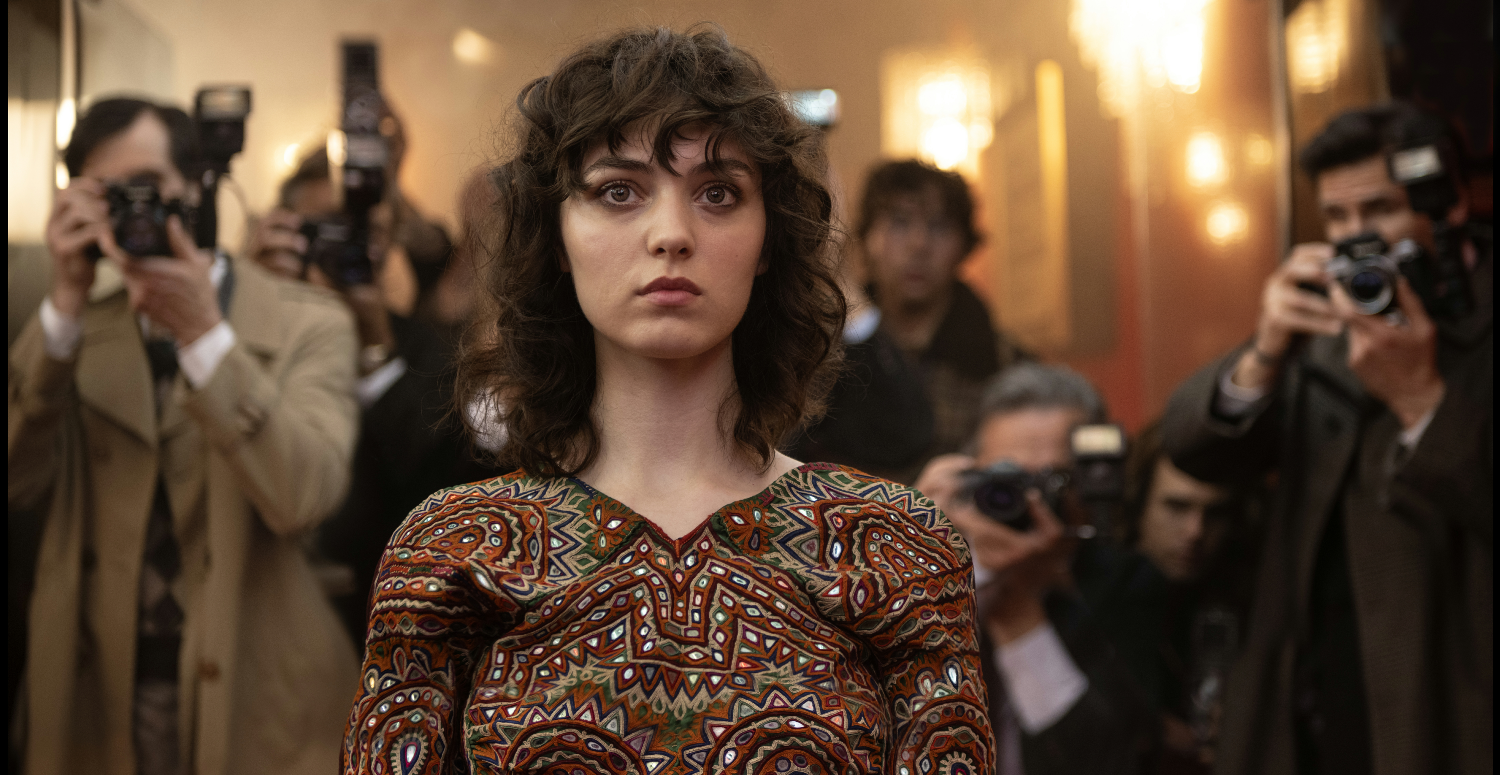Maria
(Being Maria)
2024

FR EN
Plus de cinquante ans après la sortie du sulfureux et controversé « Dernier Tango à Paris » de Bernardo Bertolucci (en 1972), la réalisatrice Jessica Palud revient sur l’histoire de ce tournage et sur les conséquences dramatiques qu’il a eues sur la vie de la jeune actrice Maria Schneider (1952-2011). Inspiré de la biographie écrite par la cousine de cette dernière, « Maria » nous raconte les travers du monde du cinéma de l’époque, et notamment la place souvent dégradante des femmes, bien avant l’avènement du mouvement #MeToo.
Fille non reconnue de l’acteur Daniel Gélin, Maria Schneider entre grâce à lui et à Brigitte Bardot dans le cercle des cinéastes et acteurs. Encore mineure à l’époque mais décrochant plusieurs premiers rôles, Maria se fait expulser du domicile de sa mère qui la renie petit à petit. À 19 ans, elle se fait aborder par le réalisateur Bernardo Bertolucci pour « Le Dernier Tango à Paris », où elle obtient le premier rôle aux côtés de Marlon Brando. Mais le tournage la traumatise et le film, jugé scandaleux et même censuré dans de nombreux pays, détruit sa réputation et sa santé mentale. Maria tente alors de se reconstruire, mais reste profondément blessée par cette expérience.
Électrisante, Anamaria Vartolomei, qui interprète Maria, est d’une puissance à couper le souffle. Sa présence, sa prestance et surtout son regard nous transportent dans les méandres des malheurs de Maria. Le film joue justement sur les nombreux gros plans sur son visage, celui d’une femme forte mais meurtrie par un univers qu’elle aime et hait en même temps.
Mise en abyme du cinéma mais aussi biopic de la vie d’une femme dont l’existence bascule lors d’un tournage abusif, « Maria » dénonce les violences faites aux actrices. En révélant l’envers du décor et en reproduisant même directement certains passages du film de 1972, le long-métrage recontextualise factuellement et avec précision la création de la sensiblement scandaleuse et choquante scène du beurre – qui ne se serait jamais construite ainsi aujourd’hui – et comment elle a bouleversé une Maria Schneider en herbe.
En revanche, si sa thématique heurte et sensibilise, et si les silences et certains personnages secondaires comme celui de Noor (Céleste Brunnquell) nous ancrent dans l’histoire personnelle de la protagoniste, « Maria » conserve une mise en scène relativement conventionnelle et présente un surnombre d’ellipses qui malheureusement appauvrissent par moments le ton militant d’un film résolument féministe.
More than fifty years after the release of Bernardo Bertolucci’s sulfurous and controversial “Last Tango in Paris” (1972), director Jessica Palud revisits the story behind the making of this film and the dramatic consequences it had on the life of the young actress Maria Schneider (1952-2011). Inspired by the biography written by her cousin, « Being Maria » depicts the failings of the film industry at the time, and in particular the often degrading status of women, well before the emergence of the #MeToo movement.
Maria Schneider was the unofficial daughter of actor Daniel Gélin, and thanks to him and Brigitte Bardot, she joined the ranks of filmmakers and actors. Still underage at the time, but earning several starring roles, Maria was kicked out of her mother’s home, who slowly rejected her. At the age of 19, she was approached by director Bernardo Bertolucci for “Last Tango in Paris”, in which she played the lead role opposite Marlon Brando. But the filming traumatized her, and the film, considered outrageous and even banned in many countries, destroyed both her reputation and her sanity. Maria tried to rebuild her life, but was deeply scarred by the experience.
Anamaria Vartolomei’s electrifying portrayal of Maria is breathtakingly powerful. Her presence, her commanding demeanor and, above all, her gaze draw us into the meanders of Maria’s misfortunes. The film makes the most of the many close-ups of her face, the face of a woman who is strong but wounded by a world she loves and hates at the same time.
“Being Maria” is both a mise en abyme of cinema and a biopic about a woman whose life is turned upside down during an abusive film shoot, exposing violence against actresses. By revealing behind-the-scenes footage and even directly re-enacting certain parts of the 1972 film, the French feature film factually and accurately recontextualizes the creation of the significantly offending and shocking butter scene – which would never have been set up this way today – and how it upset a rising Maria Schneider.
On the other hand, while the film’s theme is both shocking and sensitizing, and while the silences and certain supporting characters, such as Noor (Céleste Brunnquell), ground us in the protagonist’s personal story, “Being Maria” is still staged in a relatively conventional manner, with too many ellipses, which unfortunately at times undermine the strong message of a resolutely feminist film.

